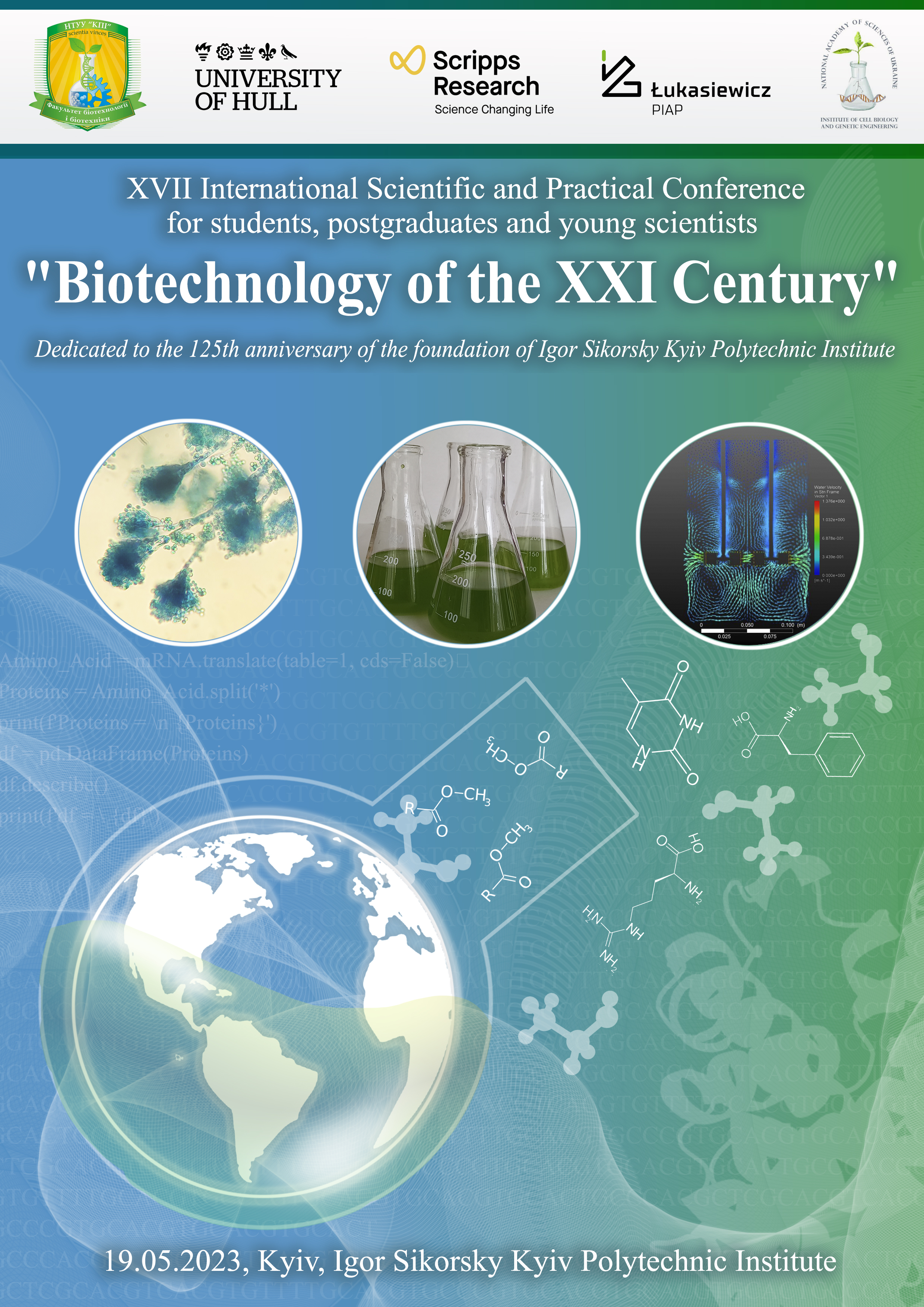ISOLATION AND CHARACTERISATION OF THE MICROBIOME OF SOURDOUGHS BASED ON DIFFERENT FLOUR TYPES
Анотація
Since ancient times, sourdough has been widely used in the baking industry. The use of sourdough made it possible to obtain bread with a better taste and texture. The microbiome of the flour plays a significant role in the final result. The microbiome of flour comprises LAB and yeast, which mainly have a positive effect on the properties of final products and filamentous fungi of the genera Alternaria, Cladosporium, Fusarium, Helmintosporium, Aspergillus, Penicillium, Eurotium and Mucor, which contribute to the spoilage of the product, which becomes dangerous for the health of consumers. The study of the properties of the natural microbiota of flflour will make it possible to determine the conditions for the creation of sourdoughs some types, which will provide better organoleptic properties of final products. Flour is also a complex multicomponent substrate from which potentially industrially valuable LAB strains can be isolated, for example, producers of exopolysaccharides. In the food industry, exopolysaccharides are used as thickeners, and in the manufacture of bread products they determine the softness of the products. When consumed, exopolysaccharides have a positive effect on the health of the consumer due to prebiotic, immunomodulatory, antioxidant, cholesterol-lowering, antimicrobial and antitumor properties. In addition to exopolysaccharides, LAB are capable of synthesizing acetoin - the compound valuable for the food industry, which gives products the aroma of butter. LAB strains capable of synthesizing acetoin are more desirable for creating starter cultures. This work is devoted to the characterisation of the composition of the microbiota of starters and the further phenotypic characteristics of the isolated LAB.
Посилання
Lau S. W. , Chong A. Q., Chin N. L., et. al Sourdough Microbiome Comparison and Benefits. Microorganisms. 2021; 9(7):1355.
Minutillo, S. A., Ruano-Rosa, D., Abdelfattah, A., Schena, L., & Malacrinò, A. (2022). The Fungal Microbiome of Wheat Flour Includes Potential Mycotoxin Producers. Foods (Basel, Switzerland), 11(5), 676.
Jurášková, D., Ribeiro, S. C., & Silva, C. C. G. (2022). Exopolysaccharides Produced by Lactic Acid Bacteria: From Biosynthesis to Health-Promoting Properties. Foods (Basel, Switzerland), 11(2), 156.

